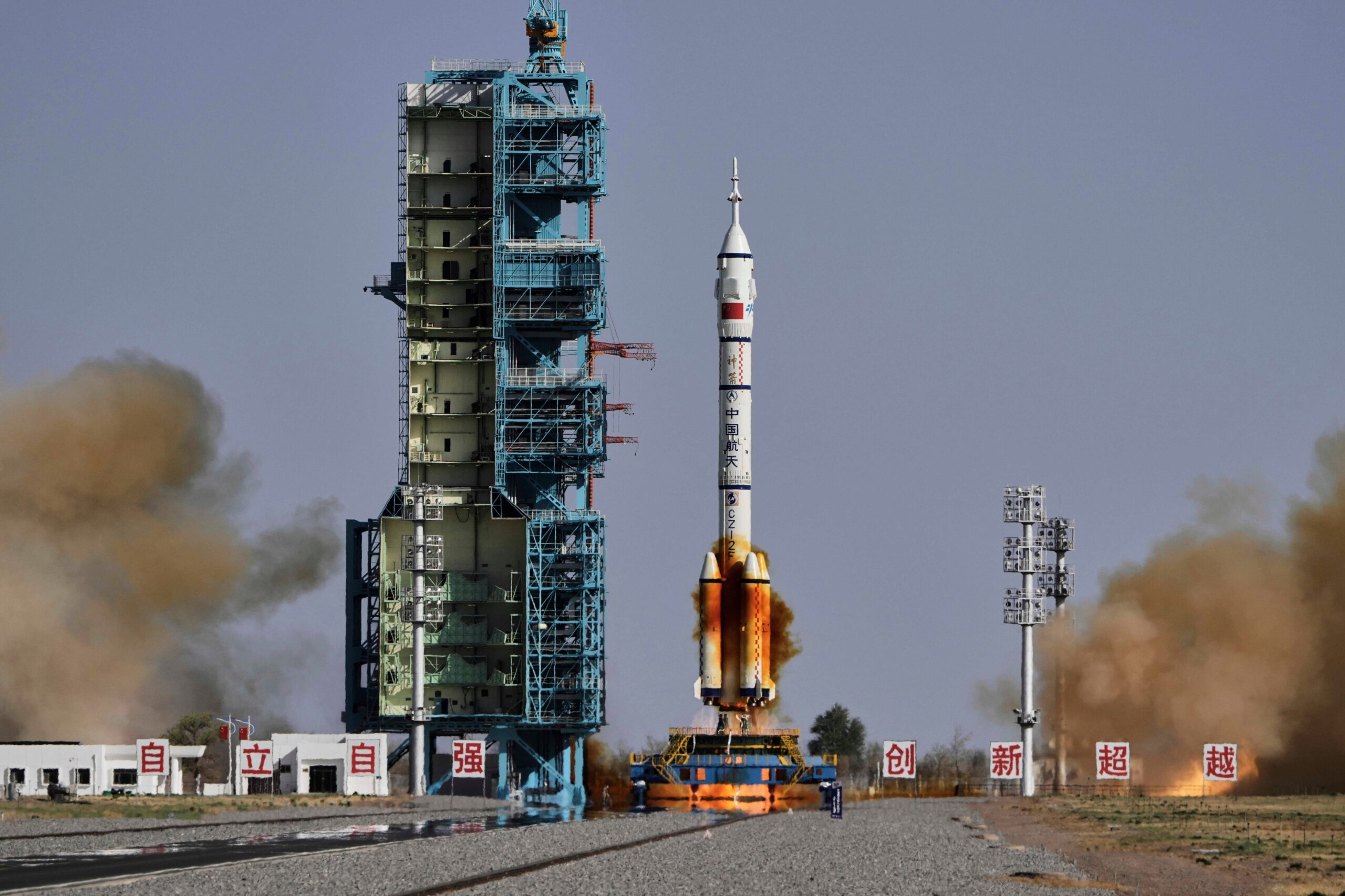WashingtonHackers supporting the Kremlin took control of an orbiting satellite that supplies Ukraine with television feed during Russia’s Victory Day celebration this year.
Ukrainian viewers were treated to parade footage beaming in from Moscow in place of regular programming, which featured waves of tanks, soldiers, and weapons. In addition to being an example of how war is fought in the twenty-first century not just on land, at sea, and in the air, but also in cyberspace and the far reaches of space, the message was intended to intimidate.
Suggested Videos
Targeting the satellite’s security software or interfering with its capacity to transmit or receive signals from Earth are two ways to disable a satellite, which might strike a devastating blow without firing a single gunshot.
According to Tom Pace, CEO of NetRise, a cybersecurity company that focuses on supply chain protection, you may seriously impair a satellite’s communication. Prior to working on cyber concerns at the Department of Energy, he was a Marine.
“Consider GPS,” he said. Consider the bewilderment that would result if a population lost that.
The immediate problem is satellites.
Today, there are more than 12,000 active satellites in orbit around the world, which are essential for military operations, economic supply chains, intelligence collection, and navigation systems like GPS. Additionally, they play a crucial role in early launch detection operations that can alert people to impending missiles.
As a result, they pose a serious threat to national security and are therefore a prime target for anyone wishing to weaken an enemy’s military or economy or to inflict a psychological blow, similar to what the Russian hackers did when they took over television transmissions to Ukraine.
Hackers usually search for the weakest point in the hardware or software that controls a satellite’s communications with Earth or supports it. Even though the orbiting device itself is safe, it can be readily compromised if it is operating on out-of-date software.
Someone targeted Viasat, the American satellite provider utilized by Ukraine’s military and administration, when Russian forces seized the country in 2022. The hack, which Kyiv attributed to Moscow, infected tens of thousands of modems with malware, causing a widespread outage across Europe.
According to national security sources, Russia is working on a nuclear weapon that would destroy almost all of the satellites in low-Earth orbit simultaneously. The weapon would mix a nuclear component that would fry the satellites’ electronics with a physical attack that would spread outward and kill more satellites.
Following a public warning about the technology from Rep. Mike Turner, R-Ohio, U.S. officials declassified information on the weapon. Turner has advocated for the Department of Defense to provide Congress a classified briefing on the weapon, which would be in violation of an international convention that forbids the use of WMDs in space if it were deployed.
According to Turner, such a weapon might prevent satellites from using low-Earth orbit for up to a year. Its use would have disastrous consequences, possibly exposing the United States and its allies to a nuclear assault as well as economic instability.
Although they are thought to be less dependent on the same types of satellites than the United States, China and Russia would also lose satellites.
Turner likened the weapon, which is not yet prepared for use, to the Russian satellite Sputnik, which brought about the space age in 1957.
According to Turner, the space age would come to an end if this nuclear weapon against satellites were launched into orbit. It must never be allowed to travel into space. This is the space equivalent of the Cuban Missile Crisis.
Exploiting the moon and beyond
As countries try to take advantage of new technology and energy sources, valuable minerals and other elements found on the moon and in asteroids may cause future wars.
The U.S. should launch a small nuclear reactor to the moon before China or Russia, according to Acting NASA Administrator Sean Duffy, who announced plans to do so this month.
“We’re competing with China to reach the moon,” Duffy stated. We need energy and some of the moon’s most important spots in order to establish a base there. Our goal is to arrive first and assert that for the United States.
Scientists think that helium 3, a substance abundant on the moon, might be used in nuclear fusion to produce enormous amounts of energy. “Control over the moon in the interim could determine which countries emerge as superpowers, even though that technology is still decades away,” said Joseph Rooke, a cybersecurity expert based in London who has worked in the U.K. defense industry and is currently director of risk insights at the firm Recorded Future.
Many investments in space were momentarily delayed by the end of the Cold War, but as the prospect of moon mining becomes a reality, competition is probably going to get more intense.
It’s not science fiction. According to Rooke, it’s rapidly becoming a reality. The game is over if you can control Earth’s energy requirements.
While the United States is preparing trips to the moon and Mars, China and Russia have revealed intentions to build their own nuclear facilities on the moon in the upcoming years.The competition is probably going to pick up speed due to artificial intelligence and the energy it needs.
The Russian Embassy in Washington did not respond messages.
According to Liu Pengyu, a spokesman for China’s Embassy in Washington, China is against any extraterrestrial arms race despite its forays into space. The United States is threatening to militarize the last frontier, he claimed.
According to Liu, it has consistently increased its military might in space, formed space military alliances, and made an effort to transform space into a battlefield. China requests that the United States cease its reckless statements, halt its growing military buildup in space, and contribute appropriately to maintaining the long-term peace and security in space.
What the United States is doing to ensure space security
Countries are rushing to develop their own space and rocket programs in order to take advantage of economic opportunities and eliminate their reliance on foreign satellites. As was shown last week when the first Australian-made rocket crashed after 14 seconds of flight, it’s a costly and challenging endeavor.
The U.S. Space Force was established in 2019 to safeguard American space interests and defend American satellites against enemy attacks.
Compared to more established forces like the Army, Navy, or Air Force, the space service is much smaller, but it is expanding, and the White House is anticipated to soon identify a location for its headquarters.Alabama and Colorado are contenders.
The U.S. military uses an unmanned space shuttle for research and classified military operations. After more than a year in orbit, the spacecraft, called the X-37B, just made its way back to Earth.
Access to space is a critical national security priority, according to the Space Force.
In order to accomplish national security goals, the Space Force must contest and control its environment because space is a warfighting domain, the statement stated.
For decades after the conclusion of the Cold War and the collapse of the Soviet Union, American supremacy in space has been essentially uncontested. However, U.S. officials say that a forceful response is necessary in light of the emerging challenges and competition from China and Russia.
According to Turner, the hope is that the United States can take action to prevent China and Russia from gaining the upper hand and that the terrifying potential of space weapons is not fulfilled.
Turner stated that in order to prevent these things from happening, you must pay attention to them.









